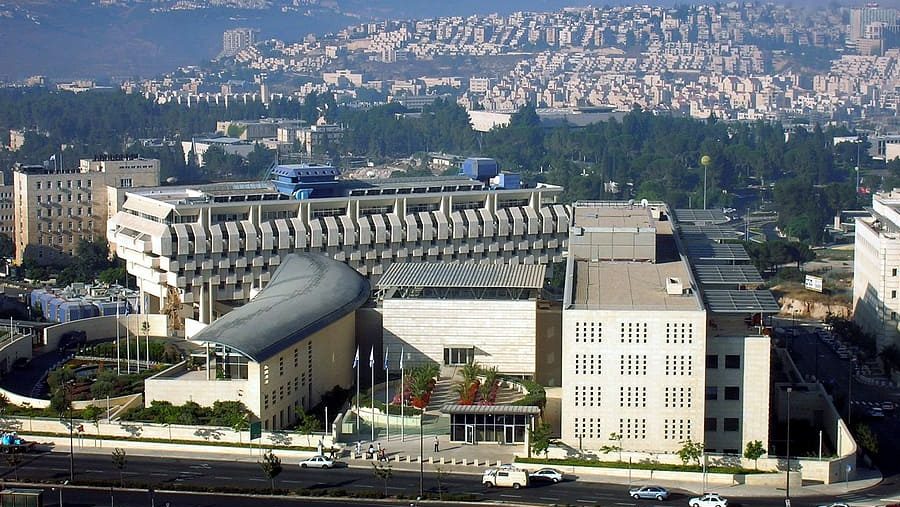This study analyzes the State of Israel’s national system for conducting foreign relations, in light of far-reaching changes in the diplomatic arena. The analysis demonstrates the necessity for wide-ranging reforms in the structure, operations and organizational culture of the governmental bodies that make up Israel’s “National Diplomatic System” (NDS), including the Ministry of Foreign Affairs. A series of concrete recommendations for improving Israel’s international relations activity is presented, with the goal of enhancing Israel’s ability to advance its international interests, security and standing.
The key recommendations are as follows:
- The Ministry of Foreign Affairs (MFA) should change the way its conceives its role, from one of gatekeeper to one of coordinator, facilitator, and integrator.
- Israel’s priorities in the international arena should be determined through an inter-agency process led by the National Security Council, rather than by the MFA, a committee of ministry director generals,
or by Finance Ministry accountants. - The MFA should reduce its hard costs by reducing its bloated and inefficient administrative staff, and rectifying years of human resources mismanagement. Money saved should be redirected towards the MFA’s diplomatic activities.
- The MFA should reduce hard costs and increase its activities budget by replacing, in certain cases, traditional embassies with alternative models for diplomatic representation.
- The MFA should draft and publish professional work plans with clear goals and key performance indicators (KPIs), and adopt professional evaluation methods to measure performance. These evaluation methods should be developed by an external body with relevant expertise.
- The MFA should change its internal culture to become less risk-adverse and less focused on maintaining quiet on the bilateral political front. It should provide greater institutional encouragement for taking initiative and out-of-the-box approaches.
- The MFA should combat the pervasive phenomenon of leaks to the media, which undermines its ability to carry out its roles in several ways.
- Public Diplomacy — The MFA’s Public Diplomacy Directorate and activities should undergo wide-ranging reforms:
a. Public diplomacy should be placed on an equal, if not higher footing, than traditional political/bilateral diplomacy, in terms of resources allocated and institutional prestige.
b. The Public Diplomacy Directorate should include a greater number of professionals and specialists with experience in fields such as strategic communications, public relations, and social media (as opposed to career diplomats).
c. The Israeli Government in general, and the MFA in particular, should greatly expand its emphasis on facilitating People-to-People (P2P) connections (rather than on classic public diplomacy involving government efforts to communicate with foreign publics.)
d. Dedicated “Global Networker” positions responsible for facilitating P2P ties in diverse realms should be established.
e. Dedicated Government Information Hub positions should be established, responsible for identifying, packaging and disseminating relevant information from throughout the government and security apparatuses. - Israel should establish a National Strategic Communications Forum to oversee, coordinate and synergize Israel’s strategic communications efforts on both the open and covert levels.
- The PMO National Information Directorate should be given responsibility for creating a public diplomacy “envelope” for the roll-out of potentially controversial legislation and government decisions.
- In working with the global pro-Israel community, the NDS in general, and the MFA in particular, should adopt an approach based on partnership, mutual respect and a network model of cooperation.
- The foreign relations departments of ministries that are part of the National Diplomatic System should be strengthened.
- Israel should greatly enhance its economic diplomacy. Among the steps that should be taken is the creation of a shared pool of officials with international economic expertise, who can move easily between relevant positions throughout the NDS.
- The ministry responsible for the fight against BDS should be one oriented towards carrying out several roles, including convening government-wide and international consultations, empowering the pro-Israel network, and executing a broad range of public and sensitive activities.
- The MFA’s career models and conceptual approach to recruiting should be updated, in order both to adapt to the career patterns of millennials, and to recruit experts with valuable experience.
- The 11 MFA appointments made by the Foreign Minister (the “political appointments”), which are currently limited to positions of Heads of Mission (HOM), should be expanded to positions in the MFA HQ as well. The number of such appointments should be reexamined as well, with the overall goal of enhancing the degree to which the foreign service reflects the government’s positions and priorities.




